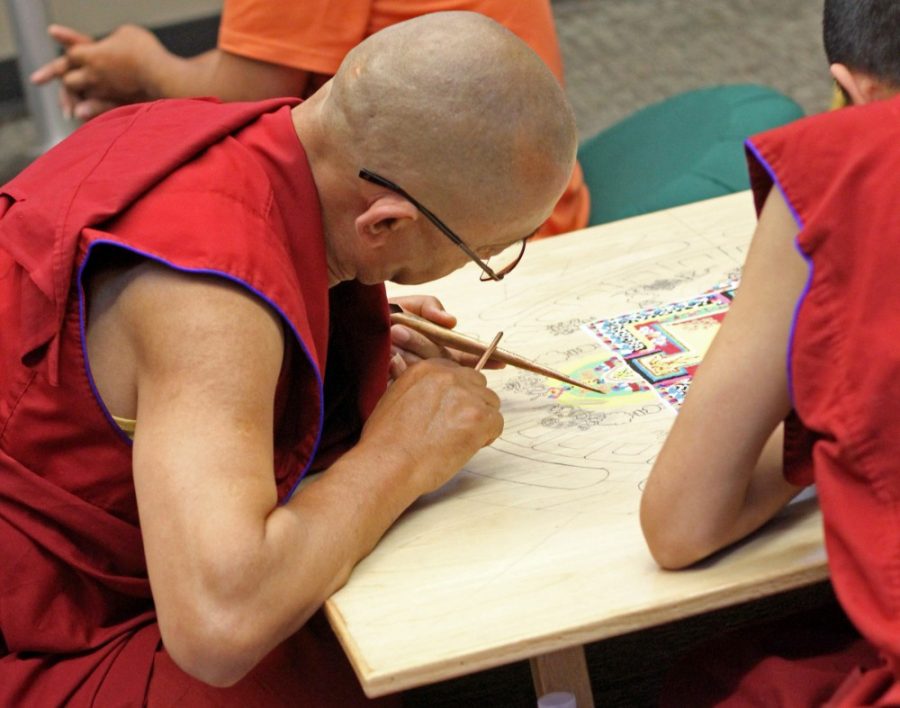The College of Humanities recently debuted the new Center for Buddhist Studies.
The CBS will focus on fostering research into Buddhism and its effects, both in the past and present.
It will also provide a way to both encourage student research already being done on Buddhism and spread Buddhist ideas to students not yet involved, according to the center’s director, Dr. Jiang Wu.
“We’re very grateful to have the full support of the College of Humanities,” he said. “This is a deliberate, calculated effort to move us forward, the entire college.”
The center aims to change how the humanities are studied, making it a more collaborative field.
“The traditional type of humanities studies … is just about yourself … reading books, writing books, publishing papers,” Wu said. “It’s very weird for a group of humanities scholars to advance themselves, set up a center, to create a program to disseminate knowledge.”
RELATED: Campus Guide ’17: Hillel Foundation offers Jewish take on home away from home for students
The new center takes particular interest in aiding students involved in East Asian Studies. “We service degree programs, such as the Buddhist studies minor program, [and] we provide supervision for students,” Wu said.
The CBS, which boasts a healthy community of graduate students, wants to develop a stronger undergraduate aspect as well.
“For those interested in Buddhism, they can always find many interesting courses, lectures and activities offered by the center,” Nan Ouyang, a graduate assistant at the CBS and a Ph.D. candidate in the Department of East Asian Studies wrote in an email. “For those not [knowledgeable about] Buddhism, the center will open a new window for … them to know better of the diversity of the world.”
With study abroad opportunities available for students, most recently during the summer with trips to China and Bhutan, the center will invite guest speakers. It will also begin giving an annual Outstanding Student Award in Buddhist Studies, featuring a $1,500 prize.
As a non-academic unit, the CBS employs a private funding model through the acquisition of grants. Currently, the center is focused on trying to secure an endowment of five to seven million dollars a year, a figure which Wu feels is highly sustainable.
The Khyentse Foundation proved extremely generous in its contributions to CBS. The foundation already sponsored a Buddhist lecture series, as well as a future project in China for UA students.
RELATED: Churches surrounding UA remain hopeful in times of Trump’s cuts
“[CBS] offers new avenues for traditional research, including digital technologies. And because of the new Department of Applied humanities … it offers some rather unique opportunities for cross-fertilization of traditional approaches and contemporary ones,” said Dr. Albert Welter, head of the Department of East Asian Studies. The creation of the center comes at a time when Asian nations are among the biggest players on the global stage. China and Japan are the second and third largest economies in the world.
“We’re in the process of seeing how this newfound economic power of Asia is translating into political and cultural influence,” Welter said.
Not only is the Center for Buddhist Studies new to the UA, but it’s also new for the American Southwest. Though a handful of major universities sport similar centers on their campuses, the UA’s center is the first of it’s kind in the region.
Both Wu and Welter expressed excitement over the creation new center and its future.
“We’re going to do something amazing, although it has not yet happened,” Wu said. “This is a study of religion. First you have to believe.”
Follow Vanessa Ontiveros on Twitter








